The Mistake That Could Drive Robins Away From Your Garden In Pennsylvania In October
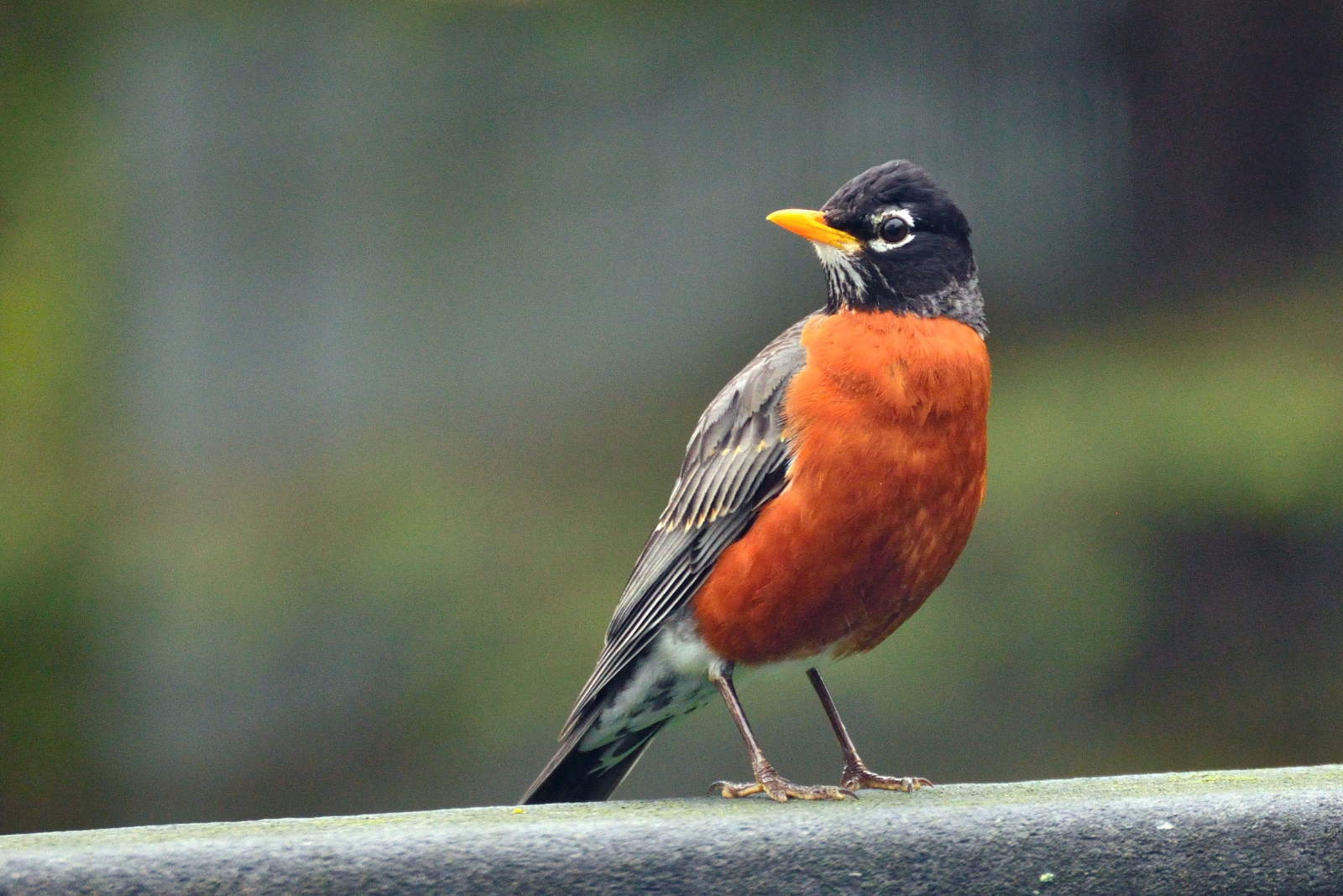
As fall settles over Pennsylvania, robins aren’t just flying south — they’re searching for backyard havens rich with food and shelter.
But one common gardening misstep can turn your yard from a welcome rest stop into a no-fly zone. Avoid this seasonal slip-up if you want robins to keep flocking to your fall garden.
1. Stop Using Chemical Pesticides On Your Lawn
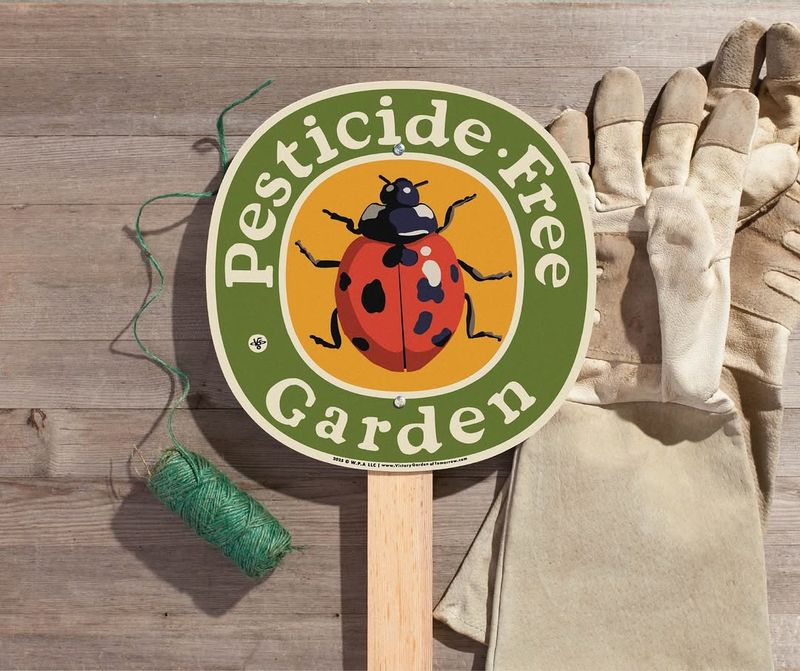
Robins hunt for earthworms and insects in your grass, making your Pennsylvania lawn their favorite dining spot. When you spray pesticides, you poison their food supply and create a toxic environment they instinctively avoid.
Chemical treatments kill the bugs robins need to fuel their journey south. Switch to organic lawn care methods that keep soil healthy and worm populations thriving.
Your robin visitors will thank you by sticking around longer and bringing their friends along for the feast.
2. Plant Berry-Producing Shrubs And Trees

October marks the time when robins shift from eating mostly insects to gobbling up berries and fruits. Without berry sources in your garden, robins have no reason to stay and will move to neighboring yards with better food options.
Dogwood, holly, crabapple, and viburnum produce berries that robins absolutely love during fall migration. Plant native Pennsylvania species that fruit in autumn to create a natural buffet.
These shrubs provide essential energy robins need for their long journey ahead.
3. Provide Fresh Water Sources Daily
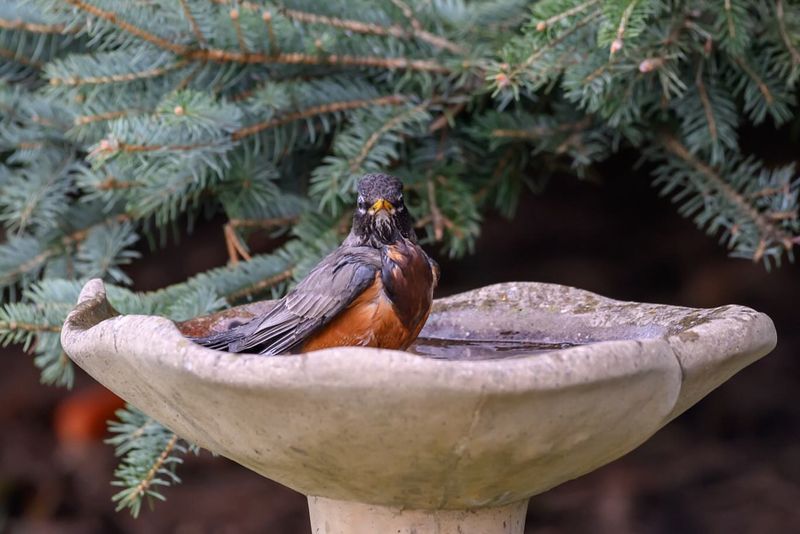
Did you know robins need water just as much as food, especially during migration? Dry birdbaths or empty water features force robins to search elsewhere for hydration, and they might not return to your Pennsylvania garden.
Change your birdbath water every day to prevent algae growth and disease spread. Add a small fountain or dripper to create movement that catches their attention from above.
Robins prefer shallow water about one to two inches deep for safe bathing and drinking.
4. Leave Leaf Litter In Garden Beds
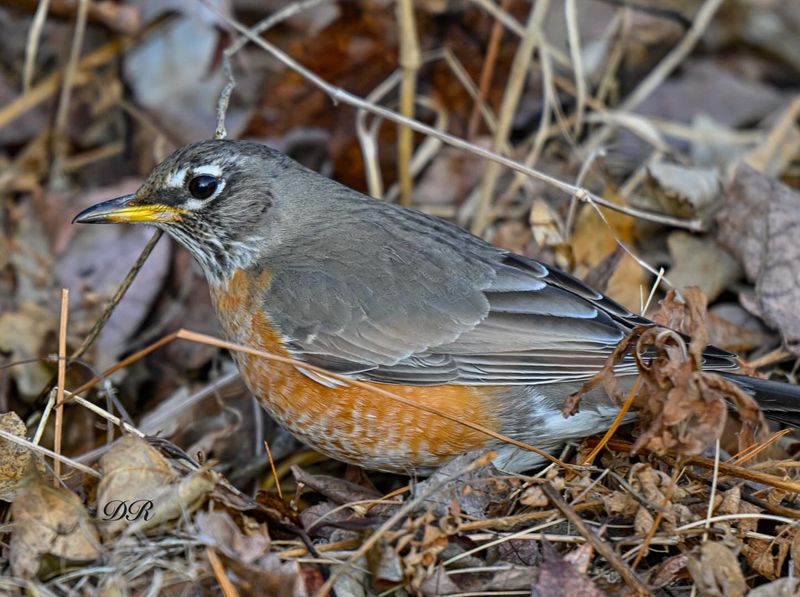
Raking up every single fallen leaf might make your Pennsylvania garden look tidy, but it removes crucial foraging habitat robins depend on. Leaf litter hides insects, worms, and other tasty treats that robins flip through with their beaks.
Keep a layer of leaves under shrubs and in garden beds where robins can hunt naturally. This approach mimics forest floors where robins originally evolved to feed.
Your garden becomes a mini ecosystem that supports robins throughout their October visit.
5. Avoid Excessive Noise And Activity

Robins are naturally cautious birds that spook easily when gardens become too noisy or chaotic. Constant lawn mowing, loud music, or frequent foot traffic makes your yard feel unsafe, pushing robins to quieter locations.
Schedule major yard work for early morning or late afternoon when robins are less active. Create peaceful zones with dense shrubs where birds can rest undisturbed between feeding sessions.
A calm Pennsylvania garden environment encourages robins to linger and even roost overnight before continuing their migration.
6. Skip The Perfectly Manicured Lawn Look

Robins prefer slightly wild, natural spaces over golf-course-perfect lawns that offer little food or shelter. Over-manicured Pennsylvania yards lack the biodiversity robins need to survive and thrive during migration.
Let some areas of your lawn grow a bit longer and allow clover or wildflowers to mix in naturally. These less tidy spots attract more insects and create better hunting grounds for robins.
Embrace a messier garden style that benefits wildlife while reducing your maintenance workload significantly.
7. Keep Cats Indoors During Peak Robin Hours
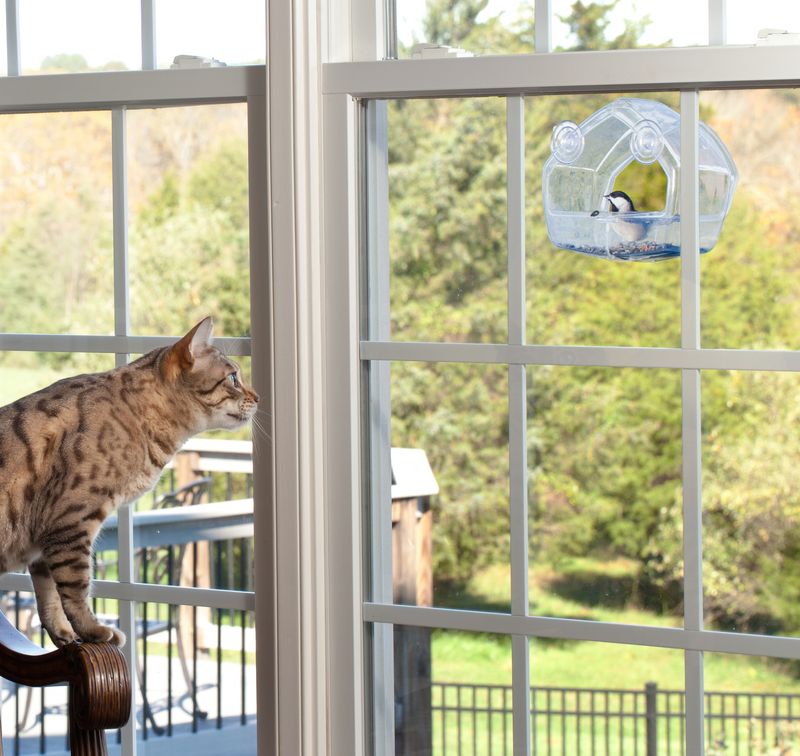
Outdoor cats are one of the biggest threats to robins, especially during early morning and evening feeding times. Even well-fed cats hunt instinctively, and their presence alone makes robins too nervous to visit your garden regularly.
Robins feed most actively at dawn and dusk when they feel safest from predators. Keep your feline friends inside during these crucial hours to give robins peace of mind.
Window perches let cats enjoy bird-watching without putting your feathered visitors at risk of harm.






